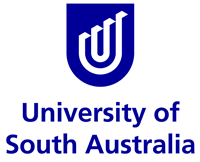Are you interested in machine learning, artificial intelligence and remote sensing? The University of South Australia – Australia’s University of Enterprise – is offering an outstanding opportunity to apply for a PhD project within the Data Analytics Group in partnership with Geoscience Australia.
Wildfires are a threat to our communities, environment, and economy. Early detection of wildfires play an important role in mitigating damages. Traditionally fire detection is mostly done by fire towers in forests. This method is not effective when the fires are small, in remote areas, and occur at night. In recent years, satellite imaging has progressed considerably. The satellite imagery, after being pre-processed, can be used in fire detection. This project aims to detect fires by fire smoke. The project is motivated by the fact that smoke spreads over a large area and is easier to see. As hyperspectral sensors develop, non-visual spectrums can also be used in the detection. This reduces the impact of lighting and clouds.
You will focus on early fire smoke detection using hyperspectral *raw* imagery to avoid data pre-processing. Using raw imagery aims to save power consumption and reduce detection time. You will aim to produce effective algorithms for satellite onboard early fire detection. Upon completing the project, you will be an expert in image-based smoke detection. This will provide you with job opportunities using remote sensing data-based modelling, prediction, and analysis, as well as academic and industry opportunities.
What you’ll do
The successful applicant will initially perform a literature review focusing on smoke detection, including pixel based smoke detection and machine learning based smoke detection; implement convolutional neural network (CNN) models; collect data; and conduct model based data labelling. You will then tackle the core problems. The core problems are the design and implementation of an effect model for early fire smoke and detection, and the design and implementation of a compact model for onboard processing without losing accuracy. There will be opportunities to attend domestic and international conferences if travel permitted.
Where you’ll be based
You will be based in the Data Analytics Group in STEM, UniSA. Our primary research interest is in extracting actionable information from complicated data to help decision making and automation. Our research topics include data mining, predictive modelling, data management, and multimedia information systems. Our application focuses are on the knowledge discovery in biology and health data, and sensor and spatio-temporal data. We are a strong team in data management and data analytics. Our research has been supported by 7 Australian Research Council Discovery (ARC) grants in the last 7 years, and our research results have been published widely in top international journals and conferences.
Supervisory Team
Associate Professor Jixue (Jerry) Liu - Principal Supervisor
Professor Jiuyong Li - Co Supervisor
Dr Stefan Peters - Co Supervisor
Mr Simon Oliver (Geoscience Australia) - Industry advisor
Eligibility and Selection
This project is open to application from domestic applicants and international applicants. All applications that meet the eligibility and selection criteria will be considered for this project. A merit selection process will be used to determine the successful candidate. The successful applicant is expected to study full-time, and to be based at our Mawson Lakes campus.
Essential Dates
Applicants are expected to start in a timely fashion upon receipt of an offer. Extended deferral periods are not available. Applications close, Sunday 23 January 2022.
Principal Supervisor: Associate Professor Jixue (Jerry) Liu

 Continue with Facebook
Continue with Facebook



